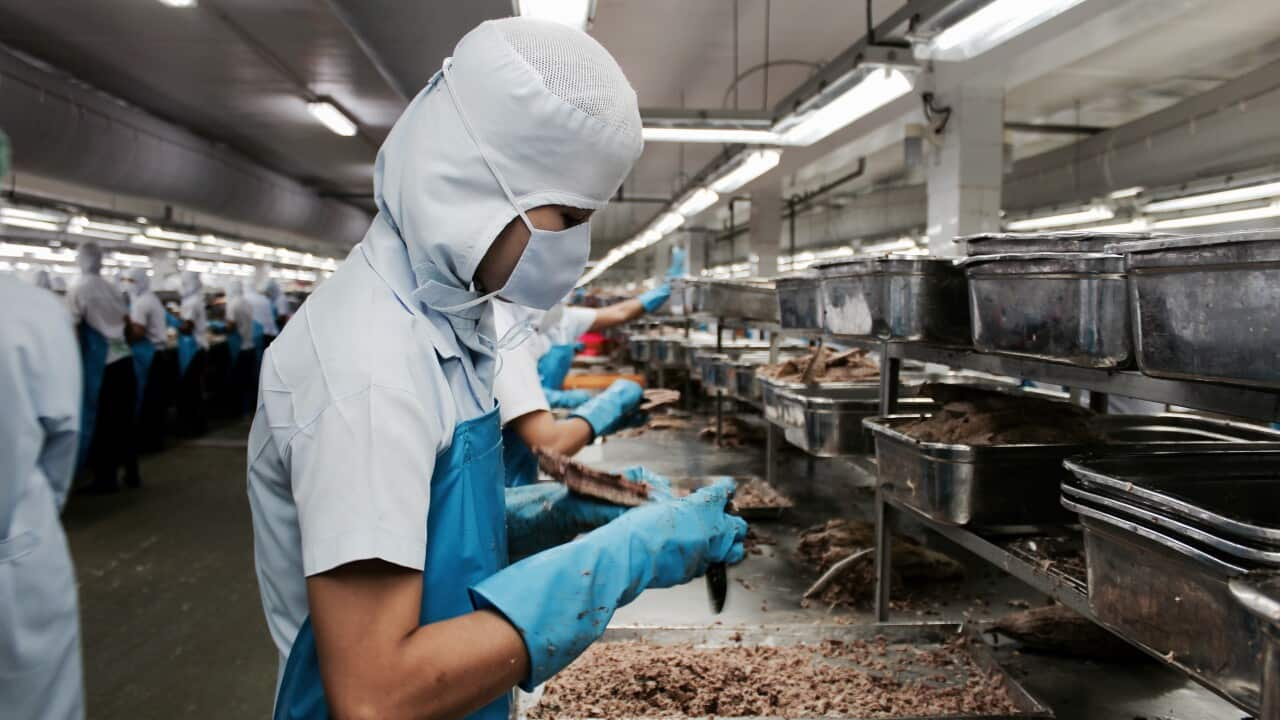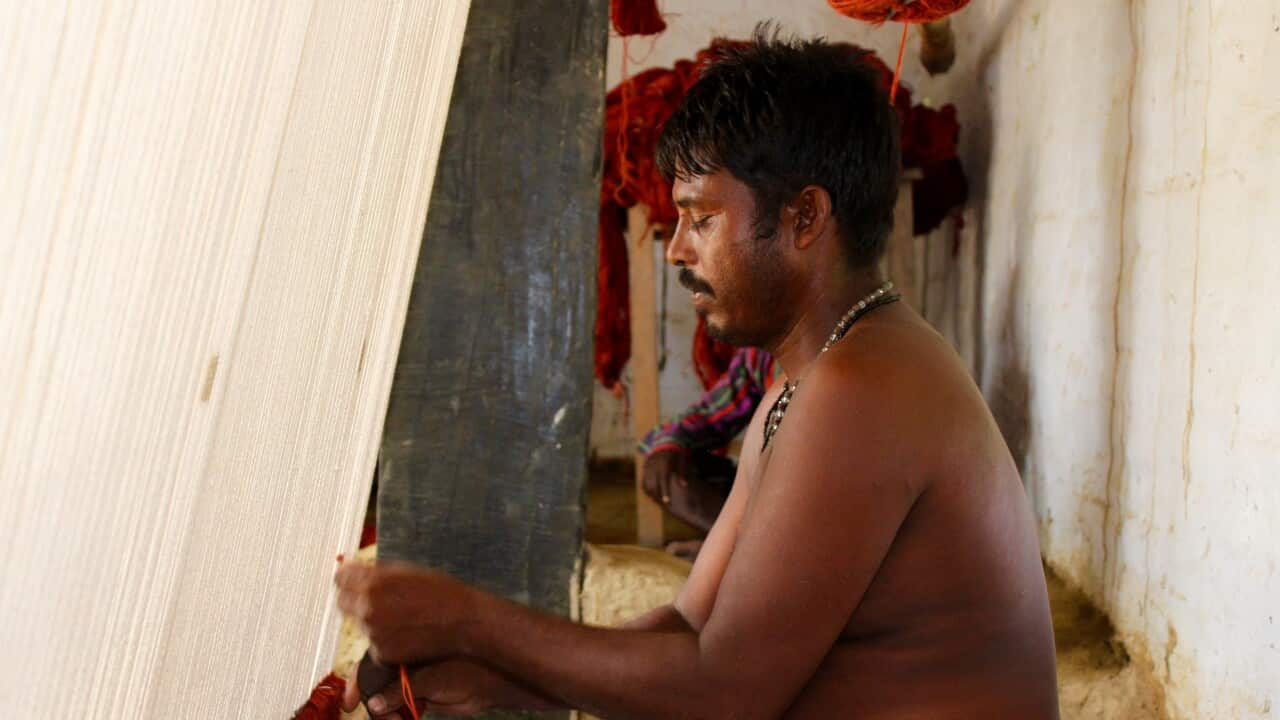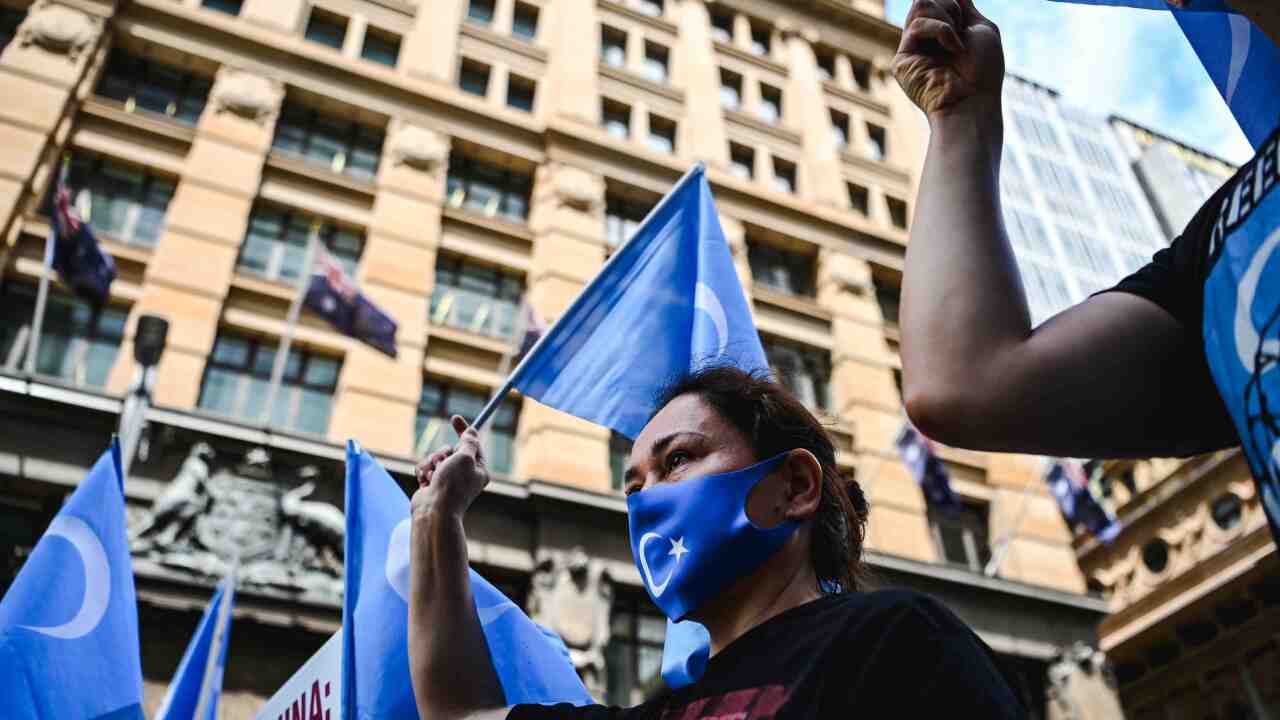Key points
- A new report into corporate reporting under Australia's Modern Slavery Act has been released.
- Key sectors covered are horticulture, seafood, garments and gloves.
- Consumers are being urged to vote with their wallets.
If your clothes are made in China, rubber gloves from Malaysia and seafood sourced from Thailand, researchers are warning you may be at risk of supporting modern slavery practices.
Those were identified as the sectors with the highest risk of modern slavery in a new report, produced by a coalition of human rights organisations and academics.
And despite previous warnings of the risks to Australian companies sourcing these products, little has changed to improve the risks.
Putting a shrimp on the barbie for Christmas? Be warned
With the holiday season approaching and seafood identified in the report as a high-risk sector, researchers are warning Australian consumers to tread with caution.
There's evidence that workers in the Thai seafood industry have been held on ships in captivity for years, said one of the authors of the into modern slavery.
"Prawns are basically the Australian staple for Christmas Day," said Martijn Boersma, the Director of the Human Trafficking and Modern Slavery Program at the University of Notre Dame Australia.
"We see that companies that source seafood from Thailand do very poorly in their reporting on risk factors.
"It doesn't require much Google searching to realise that the Thailand seafood industry has an appalling track record—we've seen cases of people being held on ships in captivity forced to work for sometimes years at a time."
Another high-risk product is cotton coming from China, which is almost all produced in Xinjiang - a region with links to alleged forced labour of the country's Uyghur Muslim minority.
Around 80 per cent of China's cotton is produced in Xinjiang, accounting for about 20 per cent of the world's production.

A Chinese worker flaps and stows cotton at a cotton processing factory in northwest China's Xinjiang Uyghur Autonomous Region, 2013. Credit: Sun yong/AP
Produce from Australia is another sector at risk of modern slavery practises.
"In Australia, the horticulture sector has long been identified as a sector with systemic exploitation and abusive working conditions,17 particularly for migrant workers on temporary visas," the report reads.
Rubber gloves from Malaysia are another industry: the report says labour exploitation remains widespread in the Malaysian glove manufacturing sector in 2022.
"In response, the US has placed several import bans on Malaysian rubber glove suppliers based on evidence of forced labour," the report says.
Which Australian companies are at risk?
Some of Australia's most well-known stores and companies have been named in the report as having a high-risk of being linked to modern slavery practices, and some for not properly reporting their level of risk.
But not all of them were low-ranked. David Jones was one of the best-ranking companies analysed in the horticulture sector of the report.
Scott Fyfe, CEO of David Jones, told SBS News that the company recognises that without diligence on its part, modern slavery had the potential to appear across "all aspects" of its business.
"We train the whole business to understand the importance of this and on how to spot it so we can eradicate all forms of slavery from our entire business," he said.

Australia's horticulture sector has long been accused of being at risk of systemic exploitation and abusive working conditions, the report says. Source: AAP
"All our people are custodians of the iconic brand and so have a part to play in protecting our legacy. It is vital we get buy-in across the business and enable a culture where we can identify and act upon any risks."
'Vote with your wallet': What consumers can do
Another author of the report, Freya Dinshaw, a Senior Lawyer at the Human Rights Law Centre, told SBS News that consumers should "vote with their wallet".
"Consumers should absolutely engage with companies that aren't pulling their weight to really mitigate and address modern slavery risks," she said.
Should companies be penalised?
Ms Dinshaw said consumers should support companies "doing the right thing," but to properly address the issue, Australia needed government intervention.
The in Australia requires companies to report potential links to modern slavery in their supply chains and how they mitigate those links, but does not ban products with a high risk.
There's also no punishment for companies who fail to report links to modern slavery.
The report recommends penalising companies that don't satisfy reporting guidelines, as links to high-risk areas aren't decreasing under the current system.
One way this could occur would be fining, or disqualifying companies from public tenders, the authors say.
Ms Dinshaw said the government should ensure Australian companies could "never profit from exploitation and abuse" in their supply chains.
She said the report calls on the government to make it compulsory to act on modern slavery links and "not just report them", penalise failures in risk mitigation, and to appoint an independent anti-slavery commissioner.
Ramila Chanisheff, President of the Australian Uyghur Tangritagh Women's Association, told SBS News that she's saddened there hasn't been improvement since a similar report that came out two years ago.
"The government has enough credible evidence on this matter, and not taking action is proving detrimental to the Uyghurs," she said.
"Without policies, laws, and penalties in place these industries seem to continue to profit from slave labour."




